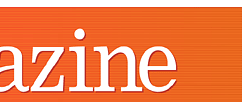|

FROM THE EDITOR
 In
this Issue In
this Issue
 Contributors Contributors
 Letters
to the Editor Letters
to the Editor
 Write
to Us Write
to Us
 Spread
the Word Spread
the Word
 Back
Issues Back
Issues
FEATURE
 My
Life-Long Love of the English My
Life-Long Love of the English
Language Business
Ken Wilson reflects on English
Language Teaching
COLUMNS
 Language
Interference Language
Interference
English Loan Words in Japanese
Read about the pitfalls of loan words and false friends in Japanese
 Focus
on Language Focus
on Language
Awareness
Introduction
Academic Writing:
Writing an Essay — How to begin
UK version ¦ US
version
 New
word of the month New
word of the month
The Language of the Web
Read about the creation of new
words for the Internet
 Top
Tips for the CD-ROM Top
Tips for the CD-ROM
Find out how to practise
spelling with SoundSearch
 onestopenglish.com onestopenglish.com
|
 |
by Averil
Coxhead
Academic Writing tasks aim to find out how
well you can research a topic, argue a point of view, evaluate evidence,
and organize your thinking. The pages in the next four issues of the MED
Magazine will provide general advice about different aspects of academic
writing and what resources you can use for more specific
advice.
What should you do when you begin an
essay?
Look at this economics essay topic:
Many countries implement minimum
wage laws that prevent employers from paying less per hour than
a certain wage determined by law. Discuss
the benefits and drawbacks that occur as a
result of minimum wage laws. Identify
who the laws help and who
the laws hurt. Explain any
efficiency loss that might result.
The words in italics
are the key words that tell you what you have
to do. The words in blue are the content
words that tell you what the essay topic is about. Here
are a number of key words that you need to know
well:
analyse
argue
assess
compare
contrast
define
describe
discuss |
enumerate
evaluate
explain
illustrate
identify
interpret
justify
list |
outline
prove
relate
review
show
state
summarize
trace |
Identify the key words in the essay topic and ensure that
you understand what you are being asked to do. Make
sure that you cover the whole topic and that you do not deviate from it.
Think about each section separately and break each section into several
small questions. These questions provide a structure or framework for
your essay. They also show you what you need to find out from your reading.
Look at this example based on the essay topic above:
- What are minimum wage laws?
- What are the benefits of these laws?
- What are the drawbacks of these laws?
- Who do these laws help and how?
- Who do these laws hurt and how?
- What efficiency loss might come from these laws?
Look at this biology essay question and decide what you
will have to do to answer it. When you have finished, look at the suggested
answers.
|
Investigate and discuss the biology of 'handedness'.
Describe the possible causes of right- vs left-handedness. Discuss
the history of discrimination against left-handed people and, if
possible, compare to discrimination generally against such groups
as women, homosexuals, or ethnic minorities.
|
Answers
- What is the biological definition of 'handedness'?
- What are the possible causes of right-handedness?
- What are the possible causes of left-handedness?
- Are these causes the same or different?
- What discrimination has there been historically towards
left-handed people?
- Is this discrimination similar to other kinds of discrimination?
Further reading
Here is a selection of websites and books that will tell
you more about academic writing:
- www.allenandunwin.com/eStudy/estudy.asp
- Allen and Unwin eStudy Pages
- Day, S.X., McMahan, E. and Funk, R. (1997) The
Practical Writer's Guide. Needham Heights, MA: Allyn & Bacon.
- Leki, I. (1995). Academic Writing (second edition).
New York: St Martin's Press.
- Rodrigues, D. and Tuman, M. (1996) Writing Essentials.
New York: W. W. Norton.
- Wilhoit, S. (1997). A Brief Guide to Writing from
Readings. Needham Heights, MA: Allyn & Bacon.
Usage Notes
You can find Usage Notes on Academic Writing at the following entries
in the Macmillan English Dictionary:
| cause |
example |
quote |
significant |
| compare |
list |
related |
summary |
| definite |
paraphrase |
result
|
topic |
| evaluate |
prove |
|
|
Next in the series
- Identifying and evaluating resources
- Avoiding plagiarism and quoting sources
- Paraphrasing
- Referencing in texts and bibliographies
|





